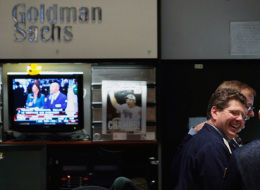The Jobs Imperative
If you’re looking for a job right now, your prospects are terrible. There are six times as many Americans seeking work as there are job openings, and the average duration of unemployment — the time the average job-seeker has spent looking for work — is more than six months, the highest level since the 1930s.
You might think, then, that doing something about the employment situation would be a top policy priority. But now that total financial collapse has been averted, all the urgency seems to have vanished from policy discussion, replaced by a strange passivity. There’s a pervasive sense in Washington that nothing more can or should be done, that we should just wait for the economic recovery to trickle down to workers.
This is wrong and unacceptable.
Yes, the recession is probably over in a technical sense, but that doesn’t mean that full employment is just around the corner. Historically, financial crises have typically been followed not just by severe recessions but by anemic recoveries; it’s usually years before unemployment declines to anything like normal levels. And all indications are that the aftermath of the latest financial crisis is following the usual script. The Federal Reserve, for example, expects unemployment, currently 10.2 percent, to stay above 8 percent — a number that would have been considered disastrous not long ago — until sometime in 2012.
And the damage from sustained high unemployment will last much longer. The long-term unemployed can lose their skills, and even when the economy recovers they tend to have difficulty finding a job, because they’re regarded as poor risks by potential employers. Meanwhile, students who graduate into a poor labor market start their careers at a huge disadvantage — and pay a price in lower earnings for their whole working lives. Failure to act on unemployment isn’t just cruel, it’s short-sighted.
So it’s time for an emergency jobs program.
How is a jobs program different from a second stimulus? It’s a matter of priorities. The 2009 Obama stimulus bill was focused on restoring economic growth. It was, in effect, based on the belief that if you build G.D.P., the jobs will come. That strategy might have worked if the stimulus had been big enough — but it wasn’t. And as a matter of political reality, it’s hard to see how the administration could pass a second stimulus big enough to make up for the original shortfall.
So our best hope now is for a somewhat cheaper program that generates more jobs for the buck. Such a program should shy away from measures, like general tax cuts, that at best lead only indirectly to job creation, with many possible disconnects along the way. Instead, it should consist of measures that more or less directly save or add jobs.
One such measure would be another round of aid to beleaguered state and local governments, which have seen their tax receipts plunge and which, unlike the federal government, can’t borrow to cover a temporary shortfall. More aid would help avoid both a drastic worsening of public services (especially education) and the elimination of hundreds of thousands of jobs.
Meanwhile, the federal government could provide jobs by ... providing jobs. It’s time for at least a small-scale version of the New Deal’s Works Progress Administration, one that would offer relatively low-paying (but much better than nothing) public-service employment. There would be accusations that the government was creating make-work jobs, but the W.P.A. left many solid achievements in its wake. And the key point is that direct public employment can create a lot of jobs at relatively low cost. In a proposal to be released today, the Economic Policy Institute, a progressive think tank, argues that spending $40 billion a year for three years on public-service employment would create a million jobs, which sounds about right.
Finally, we can offer businesses direct incentives for employment. It’s probably too late for a job-conserving program, like the highly successful subsidy Germany offered to employers who maintained their work forces. But employers could be encouraged to add workers as the economy expands. The Economic Policy Institute proposes a tax credit for employers who increase their payrolls, which is certainly worth trying.
All of this would cost money, probably several hundred billion dollars, and raise the budget deficit in the short run. But this has to be weighed against the high cost of inaction in the face of a social and economic emergency.
Later this week, President Obama will hold a “jobs summit.” Most of the people I talk to are cynical about the event, and expect the administration to offer no more than symbolic gestures. But it doesn’t have to be that way. Yes, we can create more jobs — and yes, we should.
Labels: American economy, Barack Obama, Economic crisis, Germany, Joblessness, unemployment, W.P.A.
posted by Mariner at 12:30 PM
|
0 comments
![]()
![]()

